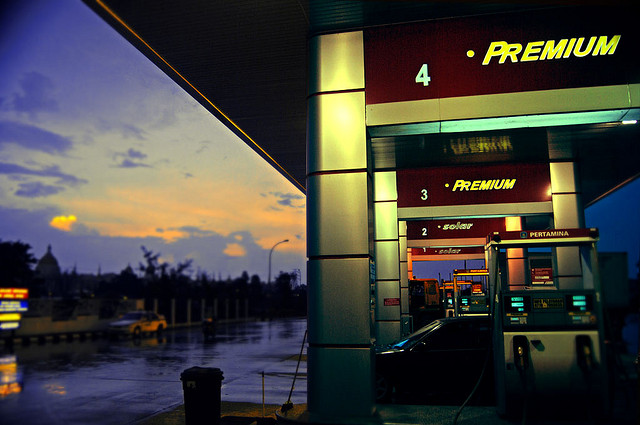
The Utah state legislature is pushing forward on several gas tax increase proposals as a means to plug a projected $11.3 billion shortfall in transportation funding through 2040. Not content with finding savings and efficiencies in the state budget, Utah lawmakers are looking for the easy way out by increasing taxes.
Both the Utah State Senate and the House of Representatives agree on raising taxes, but they differ on the specifics. The senate proposal raises the gas taxes from 24.5 cents to 34.5 cents, whereas the House is looking to implement a percentage based tax.
SB160 would raise $130 million for maintenance. For the average driver the tax means an additional $48 per year in taxes. Diesel fuel taxes would be raised by 5 cents a gallon, the gas tax would be raised by 10 cents a gallon.
Utah House Rep. Johnny Anderson (R-Taylorsville)’s HB 362 would convert the state’s per-gallon gas tax to an ad valorum sales tax.
According to Rep. Anderson’s plan, the state’s per-gallon gas tax will be converted to a sales tax with a local option, meaning that counties can hold referendums to raise the general sales tax 0.25 %. The additional revenue would go directly into funding and supporting local transportation projects and needs.The State Tax Commission would adjust the gas tax prices once a year – basing the rate off the average wholesale price from the previous year.
Under Anderson’s plan, in te the first year, the ad valorum tax rate would be revenue-neutral, but over time, Utah motorists would see an increasing rate as gas prices rose.
One of the most dubious components of HB 362 would be the false choice it presents local taxpayers. The local option would stick voters with the choice of the potentially higher state ad valorum rate or an even higher rate if a local option is enacted. There is no option for localities to lower the gas tax rate.
Billy Hesterman, Vice President of Utah Tax Payers Association has responded to Rep. Anderson’s call for higher taxes:
If I’m living in Davis County and I work in Salt Lake County and Davis passes it and Salt Lake doesn’t. My purchasing decision is going to be decided. I’m going to purchase gas in Salt Lake County instead of in Davis. And we would rather see the market drive where I decide to purchase instead of a tax policy.
Even Rep. Anderson admits that with his proposal, “We’re not fixing the whole problem. We’re taking steps toward it.” This sounds an awful lot like Rep. Anderson is leaving the door open for future tax hikes to fund transportation in Utah.
Utah taxpayers and motorists would be better served if the state legislature tackled state spending, prioritized transportation needs, and explored the possibility of future public-private partnerships to ensure an adequate transportation infrastructure. Between 2000 and 20009, state spending in Utah outpaced inflation and population growth by nearly $9 billion. That $9 billion overspending problem could have been avoided with revenue going to better use on needs such as transportation. To put it bluntly, the gas tax measures being pushed through the Utah legislature are not the solution Utah needs.

